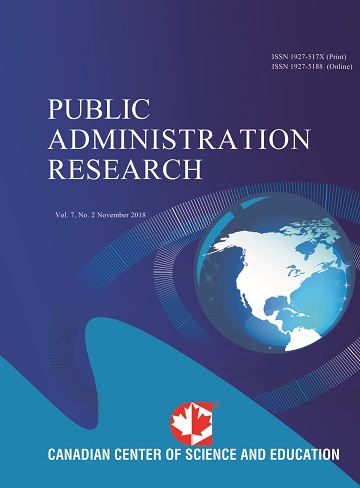The Instrument Constituency in the Political Subsystem of Brazilian Vocational Education
- Elisabete Corcetti
Abstract
The instrument constituency is a component of the political subsystem dedicated to the articulation and promotion of particular types of solutions. Simons and Voss (2018) say that instrument constituencies are neglected political forces in national and transnational policymaking, advocating for more research to understand how these networks of actors emerge and their role in the political process. The aim of this work is to analyze how this type of network forms and interacts in the policy subsystem, exploring the case of the program Mulheres Mil. This is a qualitative research and it was based on the transdisciplinary proposal, which discuss with the principles of the critical discourse studies of Fairclough, combined with the model of multiple streams of Kingdon and its relation with the actors of the policy subsystem. The data used in this study were collected through: selection of the corpus of analysis; critical reading; and identification of the sections most relevant for the analysis. The corpus of analysis consisted of an interview with one of the creators of the program Mulheres Mil, and of the project Mulheres Mil in the Northeast region. It was concluded that the instrument constituencies and the groups of defense collisions refer to two distinct levels of political reality, which interact in search of different interests and objectives. In this interaction, political entrepreneurs are key elements for certain solutions to have prominence in the policy process, bridging the different networks of actors and the government.
- Full Text:
 PDF
PDF
- DOI:10.5539/par.v9n1p39
Journal Metrics
h-index (2017): 7
i10-index (2017): 6
h5-index (2017): 7
h5-median (2017): 13
Index
- COPAC
- CrossRef
- DTU Library
- EBSCOhost
- EuroPub Database
- Excellence in Research for Australia (ERA)
- Genamics JournalSeek
- Ghent University Library
- Google Scholar
- Harvard Library
- Infotrieve
- Jisc Library Hub Discover
- LOCKSS
- Mir@bel
- Norwegian Centre for Research Data (NSD)
- Open J-Gate
- PKP Open Archives Harvester
- Publons
- ROAD
- Scilit
- SHERPA/RoMEO
- Stanford Libraries
- Ulrich's
- UniCat
- Universe Digital Library
- UoS Library
- WorldCat
Contact
- Gabriel TaiEditorial Assistant
- par@ccsenet.org
